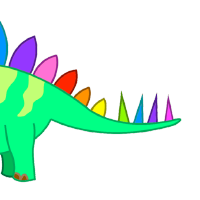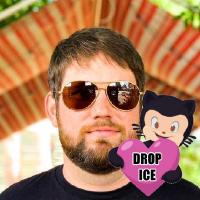00:00:12.960
So, this is what I've learned in seven years of podcasting about Ruby. I'm going to give you a brief history and then I'll talk about some of the lessons I've learned. But first, I'd like to thank the Rails Conf organizers for putting me right in the middle of naptime. I really appreciated that.
00:00:19.520
And in case you're wondering, yes, this is my son from a couple of years ago, and yes, he is face down on the floor because he just fell asleep there like that. Anyway, I'm going to have lots of pictures of my kids and other things, so this isn't going to be a super serious talk.
00:00:32.640
As I was talking to people, they mentioned that I was scheduled at the same time as Sandy Metz, so I figured you all must fall into one of these three groups: you’re either a die-hard Ruby Rogues fan, for which I thank you; or you don’t know who Sandy is; or you overflowed from her talk.
00:00:47.439
Ultimately, the purpose of this talk, though, is to inspire you to go out and contribute to the community in whatever way you choose. These are lessons that I've learned as I've been involved in podcasting over the last several years. Over the last four years, I've been involved in shows like Ruby Rogues, Rails Coach, Teach Me To Code, and others.
00:01:17.200
Ruby Rogues started four years ago, and I'll talk about its origin story. JavaScript Jabber and The Freelancer Show started about eight months after that, in January of 2012. I also started iFreaks about a year and a half after that, and Adventures in Angular began in July. So, if you're interested in that, it's been growing pretty rapidly.
00:01:52.479
When I got started, I launched a podcast called Rails Coach. This isn't the original artwork; I had this done later because I planned on relaunching it, but I never did. I also took over Teach Me to Code, which was a series of screencasts about building things in Ruby on Rails. Did anyone listen to or watch any of these? Yeah, a few of you. It’s been quite a wild ride.
00:02:37.280
I renamed Rails Coach to Teach Me To Code, and then I started another show called Rails Coach. My latest project is Rails Clips, and we just ran a Kickstarter campaign for that. The idea came about because I missed RailsCasts, so I decided to create something similar. I plan to put out videos every week.
00:02:50.320
Ultimately, I'm here to tell you my story. This is a picture of my kids from a few years ago. My daughter was reading a story to her one-year-old brother. Now, the story of how I got into podcasting actually started when I was working for a company called Mozy. At Mozy, they did online backup. I won’t bore you with the long and sordid tale of how I wound up in QA, but while I was working there, my colleague got one of the new devices.
00:03:24.720
It looked amazing, and he started listening to podcasts. While sitting at my desk, I noticed him laughing at things people were saying, and I quickly realized he was listening to podcasts. I couldn't afford an iPod, so he showed me I could listen to podcasts through iTunes. I ended up getting a little Mac Mini, which led to my involvement in podcasting.
00:04:20.160
I started discovering podcasts on topics I was genuinely interested in, one of which was Rails Envy. At that time, I had just a little experience with Ruby on Rails and was excited about this show, thinking everyone in Rails was a lot more skilled than I was and that these podcasters were celebrities. But I decided to take a leap and start my own podcast.
00:05:06.240
Despite having no experience, I reached out to Greg, saying he was awesome and seeking guidance on starting a podcast focused on Rails. To my surprise, he encouraged me to interview other developers and offered some ideas. My first interview was with Greg himself, which set the stage for my podcasting journey.
00:05:53.120
I later interviewed James Gray, who provided valuable feedback that changed my approach to interviewing. Another memorable moment was at RailsConf when I spotted David Heinemeier Hansson sitting next to me. As a new Rails developer, I was quite intimidated. I asked him for an interview, and despite his begrudging acceptance, it became one of the highlights.
00:06:37.200
This experience taught me the importance of being bold and taking risks. It's crucial to seek opportunities even when you feel uncertain. I've applied this lesson to my coding as well, leading me to accept more challenging projects and explore different avenues in my career.
00:07:28.399
Another essential lesson I learned was about asking for help. Sometimes, you might feel stuck, unsure of your next steps. However, reaching out can lead to unexpected support, whether through mentorship, financial assistance, or just guidance. For instance, before I took over Teach Me to Code, my friend Eric started it and encouraged collaboration with others in the community.
00:08:06.880
This led to opportunities, such as creating videos on Rails routing. I was pleasantly surprised when I received a free license for ScreenFlow and a microphone after sharing my struggles on social media. Over the years, I've also requested help to find work and funding for my podcasts, and I’ve found people willing to support my efforts.
00:09:02.800
It's a common experience; even when I had a smaller audience, if I asked for help, I often received it. This dynamic extends to conversations when others seek me out for help. Sometimes, discussing a problem aloud can lead to insights I hadn’t considered. The act of explaining a problem can often guide you to the right solution.
00:09:57.600
Another vital lesson is the importance of experimentation. I believe in experimental-driven development and using scientific methods to explore coding. Influential people like Dave Thomas inspire me to experiment more with my work. For instance, I've adjusted my approach to sponsorships to see how different models work, which has been beneficial.
00:10:50.080
What I've also come to realize is the social dynamics within the Ruby community. Over the years, we've featured diverse voices, showcasing different political and religious views in a safe space. Having these discussions has not only reinforced my convictions but has also provided understanding of differing perspectives.
00:11:42.239
Sessions like our Ruby Rogues retreat allowed us to engage with others in a meaningful way. We shared our life experiences, like Katrina Owen’s remarkable journey, or James Gray's personal challenges, demonstrating how their experiences shape their outlook. Being open to these conversations helps broaden our understanding and influences how we approach our code.
00:12:47.040
Now, regarding Ruby Rogues, I was inspired by the Twit network and thought it would be great to create a similar Ruby-themed show. After hesitating for some time, James tweeted the idea, and I jumped in, which led to the creation of Ruby Rogues. The original panel has changed over time, but we've built a community that thrives on these conversations.
00:13:35.679
Confidence has become another key lesson. Initially, I feared disagreeing with others on the show, but I've learned that it's essential to express my ideas, especially when I believe in them. Often, engaging in dialogue with colleagues leads to productive exchanges of different perspectives, ultimately enriching our discussions.
00:14:37.520
While being confident is crucial, it's equally important to remain humble and receptive to others' ideas. Code is often a collaborative effort, and being open to change can lead to better outcomes. Sharing good ideas and approaches can transform your work and contribute positively to your team's efforts.
00:15:59.440
However, during my freelance period, I faced difficulties, especially financially. I’ve reached out through my podcast, asking listeners for support. It can be discouraging when you feel unseen, but it’s essential to remember that contributions matter, even to a small group. I discovered that even with a limited audience, my work positively impacted some listeners.
00:17:17.600
For instance, one of my favorite moments was having Greg Baugas on the show to discuss mental illness and depression. At a later conference, someone shared that listening to that episode helped them seek help. This reinforces the idea that our discussions, whether technical or personal, can significantly influence someone else's life.
00:18:09.840
It’s vital to keep those conversations going, whether about technical challenges or personal growth. Everyone has the potential to make a difference with their voice and ideas, and it's essential to recognize the impact of sharing experiences, whether it’s about programming techniques or personal struggles.
00:19:35.919
Connecting with others is another significant benefit of podcasting. It allows me to have conversations with friends and experts weekly, which further enriches my knowledge. Whether it’s catching up with colleagues at conferences or continuing discussions on shows, these connections matter greatly.
00:21:28.680
Consequently, I encourage collaboration and community building. You don't have to feel overwhelmed when approaching others; every small interaction counts. Write blog posts, create video tutorials, engage your coworkers in discussions—these connections lead to meaningful impact.
00:23:20.080
Finally, I want to show you a picture of the people who matter most to me—my children. This is a reminder that all the connections we build are what truly matter in both our professional and personal lives. In closing, I'm Charles Maxwood; you can reach me at @cmaxw on Twitter or via email if you have any feedback or if you want assistance getting started.
00:24:49.199
I want to emphasize that we’re working on new material for next year's sessions. Now, I’ll open the floor to questions for the remaining time. Feel free to ask about anything I've discussed, whether it's about Ruby Rogues, podcasting, or any other topic.
00:26:30.720
Regarding recording, we use Skype for Ruby Rogues episodes even though my internet connection has been degrading. I’m happy to share more details about our setup or tips on how to contribute to the community if you have specific interests.
00:29:13.919
I don't see any other questions, so feel free to grab some Ruby Rogues stickers, and if you'd like, tweet at me to request some. Thank you!









